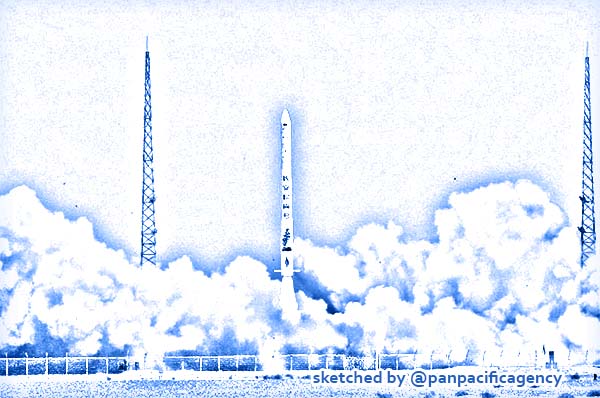S. Korea plans to launch first military communications satellite Sunday

A carrier rocket developed by a Chinese private company successfully launches to send two satellites into orbit from the Jiuquan Satellite Launch Center in northwest China, on July 25, 2019. (Chinatopix Via AP). Sketched by the Pan Pacific Agency.
ORLANDO, Jul 17, 2020, UPI. South Korea is poised to launch its first dedicated military communications satellite Sunday from Florida, United Press International reported.
Liftoff of the SpaceX Falcon 9 rocket is planned during a nearly three-hour window starting at 5 p.m. EDT from Launch Complex 40 at Cape Canaveral Air Force Station, adjacent to Kennedy Space Center.
A 40% chance of storms or clouds that could interfere with the launch exists, according to a U.S. Space Force forecast.
Elon Musk’s SpaceX delayed the launch July 14, with Musk posting on Twitter that the company was being extra cautious by checking everything thoroughly.
As a military project, few details about the satellite — ANASIS 2 — have been released. South Korea launched a similar satellite in 2013, but it didn’t deploy properly and was lost, said Kaitlyn Johnson, associate director at non-profit Center for Strategic and International Studies in Washington, D.C.
“The South Korean military’s space program is nascent and very limited,” Johnson said. “This seems to be their first fully classified military satellite.”
Johnson said the satellite most likely will be positioned directly over the Korean peninsula, providing secure communications for troops.
“Since the Gulf War, when the U.S. military used their space technology so effectively, other countries have realized they can do a lot more,” Johnson said. “South Korea is one of those in terms of diverting budget to develop more space capability.”
The spacecraft was built by Airbus Defense and Space in France and shipped to Florida in June.
South Korea has 12 satellites in orbit, according to a database maintained by the Union of Concerned Scientists based in Cambridge, Mass.
“South Korea already has multiple imagery satellites … that provide data to government and commercial customers,” said Brian Weeden, director of program planning at the Secure World Foundation, a Colorado-based non-profit that promotes peaceful uses of outer space.
The first-stage booster for the launch is the same one that launched NASA astronauts Bob Behnken and Doug Hurley to the International Space Station on May 31 in the first crewed mission from U.S. soil since 2011.